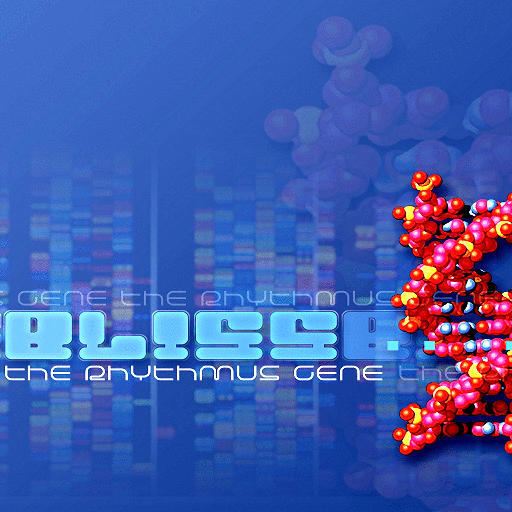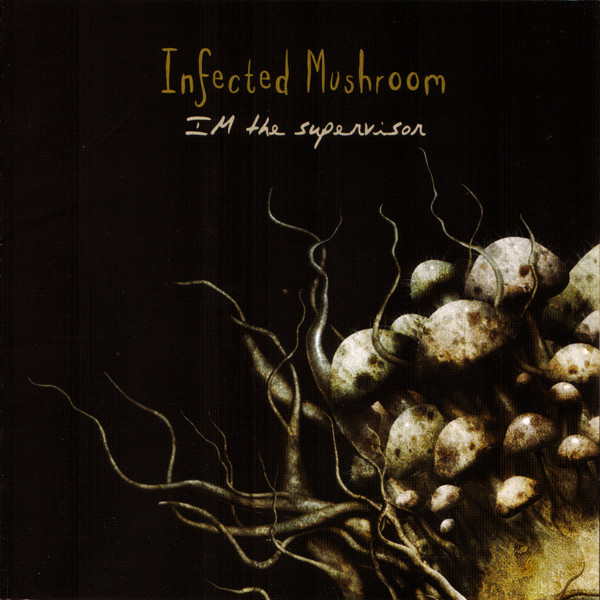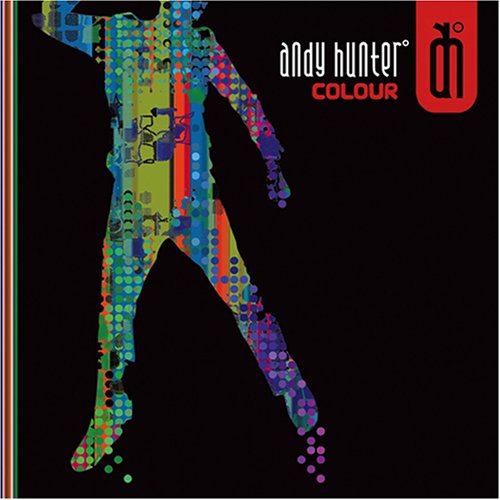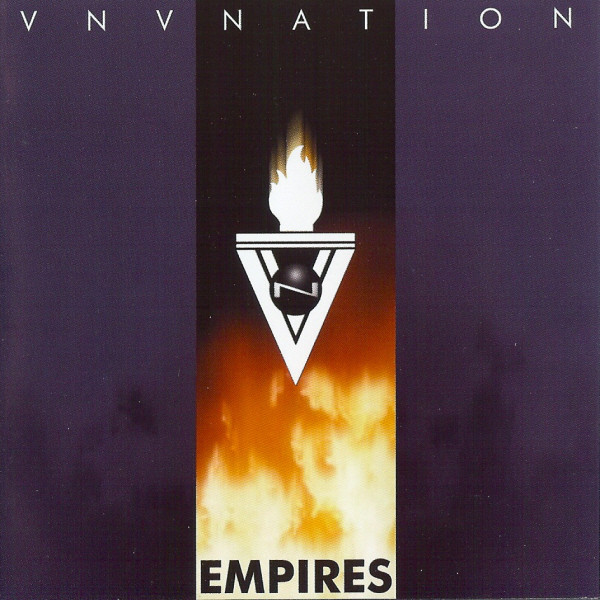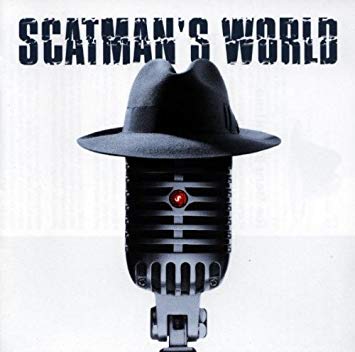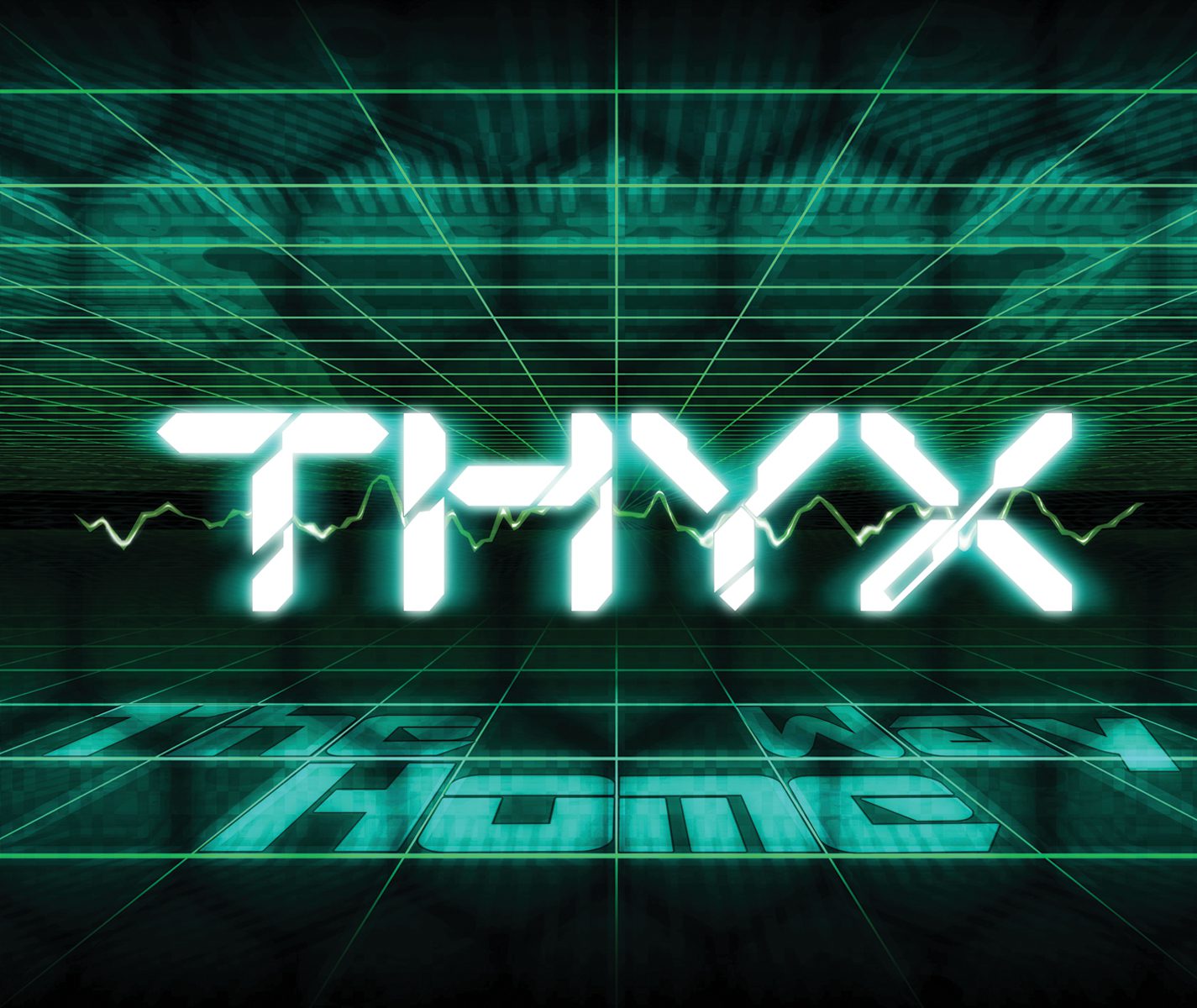Album Links:
Bandcamp (instrumentals only): https://celldweller.bandcamp.com/album/celldweller-10-year-anniversary-edition-instrumentals
Soundcloud (original album and bonus tracks only): n/a
Spotify (full album): https://open.spotify.com/album/1gStSHuxB1XHGBzPDQHU9w?si=-zbQHTIATBy5VEUPoeVCGw
Youtube (Instrumentals from disc 1 only): https://www.youtube.com/playlist?list=PLyL2RhXM8konpM1jG5Bb9NAzKiM4Dn4zD
Youtube (Instrumentals from disc 2 only): https://www.youtube.com/playlist?list=PLyL2RhXM8konPjM_Tww92DcPG2XHA9OfG
Introduction: Final round of Celldweller’s debut album and we can put Klayton to rest for a good while as I return to some of the other artists I’ve been reviewing as well as branch out to others that I haven’t yet touched. But first, it’s time to finish up the last third of the review: the 26 instrumental songs. There may be no words left on this album. But I’ll say a few words regardless.
Celldweller – Switchback (Instrumental) (6): So, you may remember in the first part of this review, I mentioned the personal Switchback “meme” that my brother and I share. This is where it began. The instrumental for Switchback. Well, it actually wasn’t really as funny until we did it with the instrumental of Unshakeable, but you get the idea. However, while this was the starting point of heightening my enjoyment of Switchback’s vocals, it doesn’t actually benefit from this because those vocals are the best part of Switchback and since this is an instrumental. They simply aren’t present.
Ah well, I don’t want to spend too long talking about what this song isn’t. Let’s go over quickly about what the song is. First off, I want to point out the beginning of this track and how it differs a bit from the original. Why? Well, there are three Cell tracks on the original album, none of which get their own instrumental (like anyone wants thirty seconds of random ambience anyway), but Cell #1 gets some special attention in comparison to the rest as its second half is actually snuck into the beginning of this instrumental.
The rest of the song is… less interesting. The parts of the song that are able to utilize some of the electric side of Celldweller intrigue me slightly, but the solo rock portions are repetitive at best and they just end up making me miss the lyrics more than anything else. The closest thing this song has to an improvement is that there’s a great bassline that didn’t get much focus in the bridge, but when push comes to shove, the vocals are more important to this song than that bassline.
Celldweller – Stay with Me (Unlikeley) (7.25): For this song, I feel the departure of vocals actually lends its way to appreciating more of the melodies and glitches this song has to offer. And the song carries itself poised exactly as it would with vocals. Take the verses for example. In the original, there’s a couple of lines in the song that diverge from the rest (“me who said it” and “me who did it”) and while I didn’t notice it in the original (because the vocals were no top of them duh), there’s a little riff on lying underneath that carries the same energy.
The absence of the lyrics is an odd loss as I’m still not certain if they were truly well executed in the original. It could be about the inner turmoil of isolation (which I enjoy) but it also could be about toxic relationships. Why do I mention this here where the lyrics aren’t even relevant to this instrumental. Well, I guess I can’t tell how to rate it in relationship to those original vocals. I am thinking that this might be a slight step down, but it’s ever so slight it almost doesn’t even matter.
Celldweller – The Last Firstborn (Instrumental) (8): Oh yeah, remember when I said the original song would have been a bit better if there weren’t any vocals getting in the way? Well look at this! No violently suicidal vocals! Instead we have that wonderful switching back and forth between the rock and electronic that I listen to Celldweller for. And the best part is that it doesn’t even seem like the vocals are missing.
Most instrumental songs have an issue with feeling somewhat empty or overly repetitive. The Last Firstborn has so much constantly going on and so much constantly changing that it doesn’t even matter that the vocals are gone. It’s actually tough to highlight everything amazing that this song does, but a lot of it does have to do with the fact that there’s never a moment where one side of Celldweller electronic or rock truly takes over. My favorite parts are definitely the quicker paced electronic portions with perfectly arpeggiated chaos and a great underlying guitar for the bass. Though the bridge also deserves some mentioning
Whatever I highlight, the entire seven minutes is exceedingly enjoyable, and it really makes me appreciate how much effort was put into this song.
Celldweller – Under my Feet (Instrumental) (8.25): Without the lyrics, this song just sounds like a great journey that the guitar goes through as it progressively gets more intense. And considering that was my favorite part of the original song, I’m really happy to hear it in the spotlight. I’d already gone perhaps a bit too much in depth in the music of the original version of this review on all of the instruments surrounding this guitar’s journey (drums, choir, etc.).
The main takeaway is that here I can enjoy the journey without any distractions. There is one point in the middle of the song that pauses before leaping the farthest jump in intensity. It feels a little off, likely because there were some vocals closing that gap initially, but it’s not an overwhelming fault and to make up for it, the absence of the vocals in the end is extremely welcome. In the original song there were some spiteful lyrics at the end that ruined the entire message and left a bad taste in my mouth. Here, however, the journey simply fades out with the same melody the song began with. A much more satisfying form of poetry than spite.
Celldweller – I Believe you (Instrumental) (6.25): Ok, so while I’ve surprisingly had a good bit to say about the songs so far, this one is going to be short. I have so very little to say about it because not much in particular is standing out to me. Throughout all the rock portions of the track (and that makes up most of it), I can’t seem to find much that’s all that remarkable in comparison to anything else we’ve heard. I do enjoy bits and pieces of it. The syncopation, the little melody that occasionally appears. But most of the guitar riffs aren’t all that great. However, I do like the riffs a bit better when they’re distorted in such a way that makes them feel more distant like at the beginning. Also, the same riff is clearly better when played by a bassy synth at the minute mark. Well, at least it’s better in my opinion. My electronic bias is showing.
Since I am listening to this on loop as I review it, I must make sure to mention that this song loops very nicely, as that pause at the end is exactly four beats. It’s kind of an abrupt ending when played otherwise, but if you want to listen to this song forever, then you’re in for a treat. I don’t even want to do that with sons I thoroughly enjoy though so I’m going to have to pass on that one.
Celldweller – Frozen (Instrumental) (6.5): Hey, wait a second. This isn’t instrumental. There’s still that one moaning chick saying, “Let’s Go.” What a ripoff! I demand my money back! Except for the fact that I’m listening to this off of Spotify so the closest I am to paying for this track is the ten dollar monthly fee, and I have feeling that Spotify isn’t going to refund me my ten bucks just because some woman decided to attempt a seductive moan when she shouldn’t have. But hey, if you want to give me ten bucks, then I’m all up for it (shameless Patreon reminder).
Ah well, other than that, how does the rest of the track hold up. Eh. It’s a bit repetitive. I mean, I appreciate that it’s no longer oddly sexual in a way that doesn’t even seem enjoyable, but what’s left behind is a lot of empty creepiness in the verses and a simple melody in the chorus with nothing to distract from the fact that it might be considered a little bit annoying. It’s the basslines that really save this song from falling by the wayside. Whenever, that two-note melody isn’t distracting, there’s an extra amount of focus on the basslines and they give a healthy variety to this track in the creepier verses and the first half of the bridge. And the second half of the bridge has a great guitar solo that’s worth noting.
Really, Frozen is a lot more enjoyable when the song itself isn’t about lack of enjoyment. Go figure.
Celldweller – Symbiont (Instrumental) (7.5): Funny how many of the songs with more uncomfortable lyrics have the best instrumentals. I mean, this isn’t quite as good as The Last Firstborn or Under My Feet, but the constant switch back and forth between the great halftime groove introduced in what was the song’s verses and the more upbeat insanity that comes in at the chorus. That first section has a consistent nice groove to it with the occasional glitching and the perfect smooth bassline. And then on the other side, we have the sudden drum and bass tempo with great guitar solos and some a drumbeat singing out the titular lyrics of the song (if the titular lyrics were there). Really, this one’s just a good enjoyable experience. Not exceptional, but definitely notable.
Celldweller – Afraid This Time (Instrumental) (7): The rewound elements of this particular song make for quite an unsettling introduction. I mean it gets better once the guitar and piano roll in there. In fact, it’s actually quite relaxing, but before that, you have to admit this song’s a bit creepy. And while creepy is all fine and good, the combination of piano and acoustic guitar is much better. Sometimes, all you need for a good time is a drumbeat, a piano and a guitar.
Unfortunately, this does mean that the parts of the song that are entirely drums and electronic bassline definitely pale in comparison to that perfect trio. I’m struggling to come up with anything to say about this chorus but I’m afraid it’s just uninteresting without the vocals. Which is a shame because that hampers the good guitar and piano we have in the verses.
Celldweller – Fadeaway (Instrumental) (8): Fadeaway’s instrumental goes through three phases. Well, I guess the original went through three phases as well as every single part of this instrumental is present in the original, but it’s much more relevant here as there are no good vocals to distract from the rest of the song. Yeah, that’s going to be a slipback in this case, but let’s talk about what the song does have.
The first phase obviously starts at the beginning during the first couple verses. It’s here that the song has some ominous slow pacing. The bass rumbles softly, foreboding the spectacularity that is the second phase. Every once and a while a couple of guitar melodies break the calmness, giving a break to the bassline that beckons danger, but such breaks are temporary until we reach the second phase.
The second phase takes all the energy that’s been building up for the past minute and a half and finally puts it to good use with the lovely quick paced DnB. There’s some decent variety here as new instruments are constantly being added and replaced, possibly allowing me to divide this phase into subphases, but I’m not going to do that. Right now, I’m just going to highlight the acidic bass that comes in at around 1:50 and the final few moments of this phase. After all the built-up energy from these guitars, a few short collections of riffs set the stage for the final phase.
And after just a couple seconds of silence (thanks to missing vocals), the song enters it’s final phase, one which builds up from a nice acoustic guitar laid on top of on a subtle electronic melody (which was present in the “silence” I just mentioned but I’m still calling it silence). The song doesn’t stay necessarily at this calmer acoustic level but slowly does build its way up to some bits of more intense rock, likely on the same level at the end of phase 2. It’s really nice to have a song build from simple lovely combinations into something a bit more extreme. I call that a build up from nothing. Not the best example, but it is an example, just as this is an example as a good instrumental.
Was better with lyrics though.
Celldweller – So Sorry to Say (Instrumental) (7.75): As I’d mentioned when I reviewed the vocal version of this song two weeks ago, this song stands out among many of the other Celldweller tracks due its use of strings and piano. Most songs in the Celldweller discography are some variety of rock (be it hard or soft) with some mixture of electronic elements sprinkled in there. And while this song does have some of the normal Celldweller in it. There are some good strings in many parts of the songs and the piano serves as the most memorable part of this instrumental due to their more unique nature. There’s also some odd distorted vocals near the end which I enjoy despite this being labeled an instrumental.
Now, I’m not just highlighting all these atypical instruments of this song to say that the rock and electronic parts are worthless in comparison. There’s plenty of variety to be had just looking at the guitar work and the glitched out drumbeat. The latter of which is generally pretty self-explanatory. A bit of syncopation and semi-unpredictability is exactly what I like and expect from drums such as these. The former, which definitely does have its usual moments does step up to provide some a good underlying drive in the song’s chorus
So yes, this song does hold up quite well on its own. It was admittedly a slight bit better with the existential isolation lyrics, but it still works well enough on its own.
Celldweller – Own Little World (Instrumental) (6): As soon as this instrumental begins my heart starts racing with pleasure, but the only reason for that is because I love the original so much. Because without the lyrics, this song really feels a bit more underwhelming than it should. Oh, it’s good, but it just feels a bit empty. The verses have this cool feeling that’s a bit more chill than the chorus as well as a bit more chilling. It doesn’t play too much with that feeling though. And the chorus is even more riskless. It’s just a couple of guitars playing the chord progression with a beat in the background. When I was listening to the original song I was so hyped up by the lyrics and their delivery that I didn’t even care how simple the chorus was. I was too busy singing along to care. And now I can’t do that. Now I’m uninterested
It really almost feels like the same one-minute song played twice in a row, with a final iteration with some slight changes: a verse that’s a bit less chill and chilling and a chorus that’s a bit more intense. It just ends up being a skippable instrumental which is rather surprising considering how much I enjoy the original.
Celldweller – Unlikely (Stay With Me) (Instrumental) (7): There are so few lyrics in the vocal version of this song, that this version feels pretty much exactly the same. And so, since I was kind of drawn towards the instrumental anyway when originally reviewing this song, I really am not left with much to say here. There’s a decent blend of electronic and rock in this one, with neither side of the Celldweller coin overpowering the other. It has nothing on the instrumental of Last Firstborn, but it still allows for a nice tone and development… Really that covers pretty much all I feel like saying on this one. It was a good song and it still is.
Celldweller – One Good Reason (Instrumental) (4.5): You know what? I have even less to say about this one. It drones on at the beginning sounding like a swarm of bees and then from then on out it’s just an unremarkable Celldweller song. Mostly rock with such minimal electronic portions that are only apparent in the chiller intro. I’m sure I mentioned this in the original review but it’s too heavy and gritty for my tastes.
At least the worst lyrics on the album are gone.
Celldweller – The Stars of Orion (Instrumental) (8): The Stars of Orion was another song with minimal lyrics like Unlikely (Stay With Me). But there is a difference here. While I wouldn’t say the lyrics of the original are bad (they’re pretty meaningless really), I feel like they do distract from the main creepy mood of the song. The mood created by all of the interesting instrumental content this song has to offer. It starts and ends with some great ambience, and the middle is covered in good distorted electronic basslines that fit a song of this tempo and drum pattern (hint, it’s DnB which is pretty much a guarantee of enjoyment for me). This song ends up creating an environment of feeling lost even more than the original could, making it one of my favorite instrumentals of the album (other than the songs rated 8.25).
Celldweller – Welcome to the End (Instrumental) (6.5): Oh no, I’m not welcoming you to the end of this review yet. Sure, this may have been the conclusion to the first part of this review, but I still have to do all the bonus tracks after this. So, I guess I’m welcoming you to the middle (about 60% done).
Welcome to The End is, once again, the chilliest song the album has to offer. And I’m including the vocal songs as well. Without the vocals (unless you count what I believe are dolphins at the beginning as vocals but nonhumans are not valid), this song is utterly relaxing. It’s no longer a cryptic story of leaving one’s home. It’s just a song that paints a picture of relaxing near the ocean. At least I visualize it as an ocean. The dolphins and the occasional bubbling do help with that whole thing.
Unfortunately, the song does feel a bit empty as it’s trying to make room for the vocals that aren’t there. The guitar breaks the silence on occasion. But unfortunately, the song has a paradoxical relationship with the vocals. It’s more relaxing without, but with that relaxation comes an emptiness. Perhaps with a more meditative mood, this can be enjoyed, but I’ve never been one to clear my mind. So this one just stands as a good song.
Celldweller & Tom Salta – Ghosts (Instrumental) (7.25): And here we have a Deluxe instrumental of a Deluxe track. There’s less of these to go through, but just as much good to point out. The original’s lyrics really didn’t come too much into my play on my opinion with this one, so we’re not missing much this time around. In fact, I think this song improves a bit focusing on just the variety of sections this song has. Sure, there are a few spots where the song feels a bit emptier than it should with the absence of lyrics. Within each section of the song, there isn’t much melodic variety, which is usually covered by the cleaner vocals this song has to offer. Where there’s the grittier vocals, the song sounds a bit more complete as the bassline here holds its own. Except maybe that moment at the three minute mark where the song pauses for two full seconds for Celldweller to scream those last couple words… except he’s not screaming those words today. He isn’t there vocally. That’s the point of an instrumental.
But Tom Salta’s strings are definitely the star of the show here. They were the best part of the song when the vocals were present, and they still are. Outside of the bassy gritty portions of the song, it’s these strings that provide most of the variety., present especially in the chorus and before each verse. It’s a pleasure to see a few clean smooth instruments clash with Celldweller’s harsher style. This one doesn’t reach the same heights as So Sorry to Say. The basslines in this song do allow for some good variety as well, not as noticeable as the strings, but the difference between the more electronically focused bass in the verses and the rock focused bass in the chorus is distinct enough to add the perfect touch to this song.
Celldweller – Uncrowned (Instrumental) (7.75): Ok, this is just your typical fantastically intense DnB track. And I love DnB so that’s a good thing. Plus there’s plenty of guitars as expected from Celldweller so that’s a slight extra flavor that makes it stand out a bit from the other typical fantastically intense DnB tracks. I do quite enjoy it when rock and electronic collide (which is probably my favorite thing about Celldweller) and this song is once again one that shows off a bit of that diversity, delegating the bass to the electronic side and pretty much everything else to the rock. Oh, but it still feels quite balanced with how much bass variety this song has as it switches between lightning paced DnB and some good half-time that can be used as a breather with strings instead of guitars. The song is constantly changing, keeping me on my toes as I’m shifted back and forth between rock and electronic, DnB and halftime, this riff to that riff. The list goes on and the song is enjoyable the whole way through.
Celldweller – Tragedy (Instrumental) (5.75): Remember when I’d first reviewed Tragedy? I mentioned how the song really sounded like Celldweller just wanted to make a cover of a Bee Gees song with an edgier rock-oriented twist. And that’s all he really wanted to do. Make a rock cover and have a little fun without worrying over whether or not the music was exceptional. So, what is this song without the lyrics that make it a Bee Gees cover?
Not much. I mean, it’s not bad, but it’s so riskless in comparison to the other Celldweller songs once you strip them all down to the basics. This song is just another track to move on from.
Celldweller – Shapeshifter (Instrumental) (7): What is Shapeshifter without its rapped verses and violently misheard chorus? Well, the end result is still a song that still stands out a bit from its surrounding instruemntals. Or maybe I’m just saying that because anything will feel it stands out after listening to tragedy…
Ah well, unique or not this song has a lot of good strengths, sticking strongly to that electronic rock fusion. The rock is definitely the overwhelming of the two sides here (as per usual), but it isn’t a situation in which the electronic is completely covered up. The chorus is a bad example as the only thing close to electronic there is that annoying synth which does not help this song’s case that much (It’s only in the first chorus this time though so that’s different). The verses on the other hand have some good little plucks of flavor that help keep the song interesting even without the rapper providing the usual variety. And in the bridge, the absence of the vocals really brings out some great bassline work. I wasn’t quite certain if it was still electronic or not upon my first couple listens, but it doesn’t really matter the origin of this sound. It really adds a lot to the bridge and I’m thankful that this instrumental has allowed me to home in on its excellency.
Electronics aside, the parts that are fully rock do truly rock. So, I’m not at all bothered by them overtaking the spotlight at parts in this song. There’s something about the final chorus that really feels like it concludes the song quite nicely. Of course, maybe that’s just because it follows that great bridge… and it is the end of the song…
Still don’t know what this song has to do with shapeshifting.
Celldweller – Goodbye (Klayton remix) (Instrumental) (7.5): Klayton’s remix of Celldweller’s Goodbye (it’s odd and I’ll never get used to it), is a 7-minuter, which means that in order to succeed, it really needs to have a good dynamic variety to make it worth its time. And that can be tricky to do with an instrumental song that was originally made to have vocals providing some of that variety. However, I believe this nonlinear remix of Goodbye does succeed in that variety. It does so barely, but it’s just enough.
The beginning of the song seems to have a bassline that drones on for quite a while at first, but the drums accompany to lengthen its lifespan of interest for some time until the song fully picks up its pace with a second bassline (yes) a full DnB drumbeat (even more yes). The bassline does undergo a healthy amount of variation as the song progresses, but it never gets tired as it does take some breaks to bring in a guitar to fill in the space for a short bit, elongating the time this DnB can reasonably continue. And before it runs dry, the song finally takes a small step back tempo wise and trades the lightning paced syncopation for some slower slightly more dramatic half time with much more focus on the guitar this time around as it eventually distorts its way into a good solo for the ending as the song returns to its creepy droning roots.
I really can’t say that a certain part of this song is my favorite part. It’s simply a good variety of some really good ideas. Sometimes, that’s all you need for an enjoyable experience.
Celldweller – The Last Firstborn (Klayton remix) (Instrumental) (7.75): In my last two reviews, comparing the original version of the Last Firstborn to this Klayton remix, the latter was the clear winner. However, the reason for that victory had very little to do with the music itself, but simply because the slightly stripped down lyrics of this version happened to strip away the most problematic portions of the song. But this third part of the Celldweller review, changes everything. Because now all the lyrics have been stripped away. Klayton’s remix no longer has the lyrical advantage and now the two songs can be held side by side to determine which one is truly musically better.
It’s the original.
I mean, this is good and all and I stand by the 7.75/10 I gave it last week, but there really is little difference between this and the lyrical version. I still appreciate the mysterious progression and the focus on the electronic arp that proved to be my favorite part of the original, but there’s so many other things in the original that contribute to the electronic rock fusion that is Celldweller. And it’s that balanced fusion that really makes The Last Firstborn so exceptional. Without the lyrics holding it back, Klayton’s remix never stood a chance.
Still a good remix though.
Celldweller – Switchback (Klayton remix) (Instrumental) (6.75): Because the Copy Paste Repeat remix doesn’t have an instrumental (for understandably chaotic reasons), we’re having three of those Klayton remixes in a row. If it weren’t for the next two songs, we’d be able to knock all four of them out in one shot (though honestly, I think I’d rather have eliminated the fourth Klayton remix than sacrifice the two songs in between).
Anyways, we’re back to the iconic Switchback song, just without the iconic switchbacking vocals… So, is it worth anything? Well, even without the vocals, there are still plenty of elements here that are reminiscent of the original. The most prominent of them being the bassline. Now, as you saw in the beginning of this review, I’m not particularly fond of this bassline. I don’t dislike it. I’m just not fond of it. But here, it seems to work a bit better. Perhaps that’s because this is a more electronic version of switchback and not the original almost entirely rock version we heard earlier. And because of that, I’m noticing a bit more variety in how the instrumentation transforms over time. And that’s especially noticeable with the lyrics stripped away.
The song is still missing the variety that is usually provided by the bridge, which does hold the track back slightly and I feel with that tiny hint more of variety it would reach that 7 point threshold, but alas, it shall reside back with a 6.75.
This is the last of the five Switchback songs in this entire deluxe album. No going back now.
It’s too late to switch back.
Celldweller – Atmospheric Light (Demo Redux) (Instrumental) (6): This is the only demo to get an instrumental for some reason. Perhaps the redux means something that allows it to have an instrumental when the others couldn’t. Which is really a shame because Waiting could really have used an instrumental. This song on the other hand… well I didn’t really mind the lyrics from the original (didn’t enjoy them all that much but didn’t mind them), so this song didn’t need an instrumental. And to be honest, this song is really one of the most repetitive tracks that this entire album has to offer. The main electronic synth feels like it’s playing the same couple notes over and over again with maybe a little bit of automation, but not enough to give the song a full fleshed out feeling to it. The guitar does help a little and the strings do make the song actually feel complete for a brief moment, but for the most part, this song just feels a bit empty. Some decent mysterious vibes, but other than that quite insignificant.
Celldweller – Own Little World (Blue Stahli remix) (Instrumental) (8.25): While the instrumental of the original version of this song kind of fell flat, Blue Stahli’s version can easily hold its own even without my favorite lyrics on the album. Everything I initially enjoyed about this remix is even better the second time around. I already spoke pretty in depth about the nonvocal elements of this song last week as the vocals were already covered the week before, but there are still some things I want to go a tiny bit more in depth with.
First off, there’s the funky guitar in the verses. I already knew this bassline has a good groove when I’d first heard this song, but without the lyrics, there’s such a heavy focus on the deep groovy feeling emanating from the bass end of this track that I simply have to mention it again. Really any moment of the guitar is driven with so much intensity that its surprising that the vocals were able to make a mark without being overwhelmed by the instrumental. But it all worked out with the vocals, and it works quite nearly as well without. Same goes for the build-up from nothing, which was originally laden with Celldweller’s lyricless cries and now is able to have a bit more focus on the strings that serve as the backbone for that track.
It’s all still better with vocals though. That was obvious from the start.
Celldweller – Shapeshifter (Klayton remix) (Instrumental) (7.5): There is very little to say on this one. I may have bit myself in the butt when reviewing these remixes, as it’s difficult to talk of anything but music after all of the lyrical analysis has already left my system when I’d reviewed the original. And when I’d reviewed this remix, all I really said was that this song is more intense and aggressive than the original. I gave a few examples of why, but a lot of it comes down to how dense this song has become. Every single second of this song is filled to the brim with intense basslines and the like that it’s incredibly overwhelming. The electronic elements (most noticeably the simple plucks and melodies in the verses) have become a lot more prominent, but none of the guitarwork has suffered because of it.
I’ve said so much between the other three times I’ve reviewed Shapeshifter (all of which are somewhat similar musically outside of intensity and whether or not there are vocals), that I feel that there is very little left to say for this one.
Celldweller – Goodbye (Instrumental) (5.5): Goodbye has a great build at the beginning of the song, filled with ominous basslines (both the long sweeping distortion and the wavering notes) and the occasional melody. This build is the best part of the song, concluding with some a good rise with the guitar as we near the main theme of the song.
And that’s about all I have to say positively for this one. This song goes nowhere. This wasn’t much of a problem with the original version as it had some existential lyrics about the neverending passage of time, but as time passes in this version… it’s just not that interesting. The guitar is repetitive and plodding. The short breaks are somewhat appreciated, but I’ve noticed that they’re really the same pattern without the guitar. The melody near the end does provide a bit more variety, but it really wouldn’t be special in any other song. Only reason I appreciate it here is because the rest of the song is a bit bland. And that says more about the low quality of the song than the higher quality of the melody.
And as it turns out, because the demos are defunct and there’s no instrumental available for the orchestral wonder that is Switchback (No I’m Not remix), we are actually ending this review, once and for all with a fitting song.
Goodbye.
Conclusion: Ok, that’s the last of Celldweller I plan on reviewing for a long while. I love the guy, but his Deluxe albums are a bit extreme, especially this time around. And so, after three whole consecutive weeks of Celldweller, I plan on delaying coming back to revisit his discography any time soon. Maybe not even this year. Good album though. There were definitely some rough patches here and there, but each part of the review got better and better. In some ways I guess the instrumentals didn’t add too much content for me to talk about, but I feel it did allow me to shed some nice light on some of the edgier tracks whose lyrics got in the way. Sometimes, you just have to strip down a song to its elements to truly enjoy it. This doesn’t always work though as there were definitely a few songs in here that would have been better had Klayton still been singing, but you can’t win them all. But seeing as the score has slightly improved, I guess you have to win some of them.
Final Score for Original album: (6.5/10)
Final Score for Bonus Tracks: (6.75/10)
Final Score for Instrumentals: (7/10)
Final Score for Album Overall: (6.75/10)


